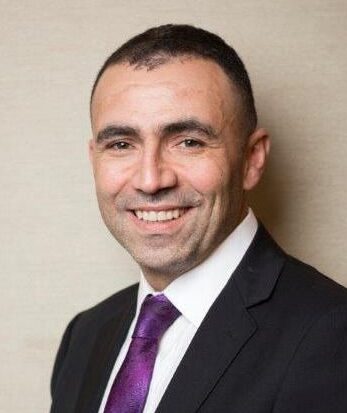Adaptin Bio is launching with plans to bring a bispecific T cell engager for glioblastoma, a deadly form of brain cancer, into the clinic.
The company received FDA clearance to start its clinical trial, which will be run at Duke University and enroll around 25 patients. The bispecific T cell engager was developed by researchers led by John Sampson, who previously was chair of the neurosurgery department at Duke and is now dean of the University of Colorado’s School of Medicine.
Duke’s work on the therapy was supported by a $5 million NIH grant, and Adaptin conducted preclinical work on the asset with funds from an undisclosed pre-seed round. Adaptin is closing its seed round this week, but declined to disclose the amount. The company is led by Michael Roberts, who previously was VP of business development at Chelsea Therapeutics, which Lundbeck acquired in 2014.
The drug, called APTN-101, is designed to bring T cells to cancer cells in hopes of stoking the immune system into fighting the cancer. The therapy targets both EGFRvIII, a protein overexpressed in glioblastoma, as well as CD3, which is found on T cells.
 Mustafa Khasraw
Mustafa KhasrawAmgen and Roche had developed EGFRvIIIxCD3 bispecific antibodies, but both stopped work on their assets. Roche announced in February it was axing its glioblastoma bispecific amid broader pipeline cuts across its portfolio.
“There has been no progress for the last 20 years — zero,” said Mustafa Khasraw, a neurosurgery professor who took over the project at Duke after Sampson moved to Colorado. He noted that there are several key obstacles, ranging from the methods used to develop drugs to the challenge of getting several biopsies to the blood-brain barrier.
Khasraw and others have begun testing potential therapies for brain cancers in different ways, including first testing them on biopsies before deciding whether to administer them in humans. GSK said in May it was planning a Phase 3 trial of Zejula in glioblastoma based on the results of a combined Phase 0/2 study that used that approach.
A key test for Adaptin Bio will come down the line. The startup plans to combine its bispecific T cell engager with cell therapy, and take advantage of a concept called “hitchhiking,” where manipulated T cells can move past the blood-brain barrier, hopefully directing more of the T cell engagers to the brain cancer.
“We have a technology that circumvents and overcomes some of the key limitations when we talk about delivering treatments to the brain, even T cells into the brain,” Roberts said. “I do think it’s the delivery aspect that really makes the difference here.”
“We need to do more innovative trials — thinking outside the box and using new approaches — because all the traditional approaches have failed in this disease for at least two decades,” Khasraw said.